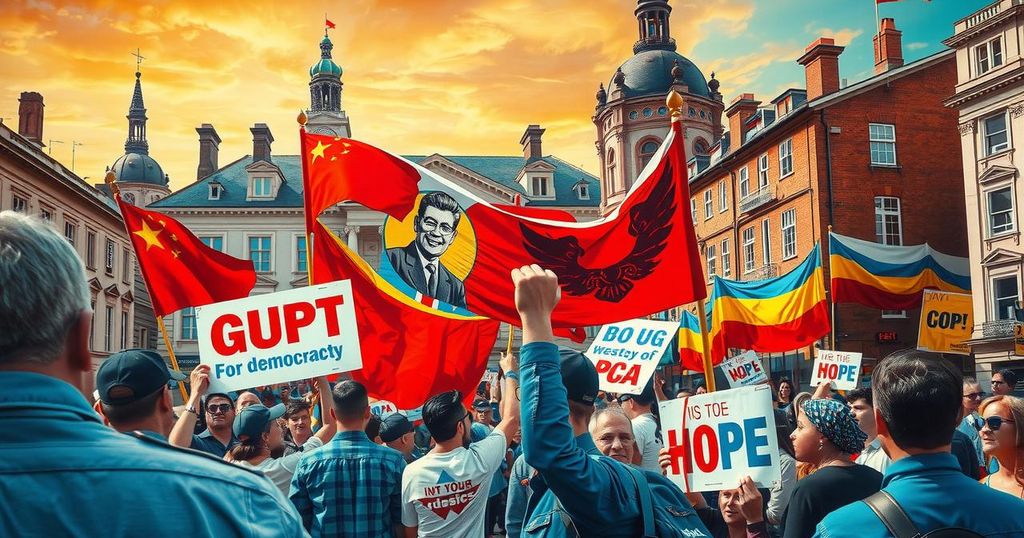Mali Sees First Pro-Democracy Rally Since Military Coups, Activists Demand Change

Hundreds protested in Mali’s capital against a bill seeking to dissolve political parties, marking the first pro-democracy rally since the military coup. Activists condemned government efforts to limit political activities, calling for a return to constitutional order and elections. This comes amid ongoing tensions following recent government proposals regarding leadership and political structure.
In a significant show of dissent, hundreds of activists took to the streets of Bamako, Mali, over the weekend, marking the first pro-democracy rally since the military seized control nearly four years ago. Despite warnings from the military government, demonstrators protested against a controversial new bill aimed at dissolving political parties in the nation, a move viewed as a further infringement on democratic practices.
The gathering occurred outside the Palais de Culture, where police enforced barriers to prevent clashes with pro-military groups who had pre-emptively occupied the venue. Activists chanted against what they labeled a dictatorship, underscoring a growing frustration with the transitional government’s tightening grip on political activity.
The organizers of the rally asserted in a statement their vehement opposition to any moves that would limit political parties, highlighting this as a direct assault on Mali’s constitution and the rights of its citizens. “We strongly condemn any attempt…to dissolve political parties,” their statement read.
In a follow-up press conference on Sunday, civil society representatives, political party members, and labor leaders came together to call for a return to constitutional governance. Organizer Cheick Oumar Doumbia stressed the need for “transparent, inclusive and peaceful elections” as a means to restore democracy in Mali. Police, however, disrupted the press event, warning participants of potential confrontations with military supporters.
Political tensions are palpable, and while it is too soon to ascertain the long-term impact of these protests, some experts are cautioning that without reassurances from the government, the situation could escalate. Political analyst Mamouni Soumano remarked on the importance of addressing the grievances of political parties to avoid increased unrest.
Recent actions by Mali’s leadership included a decree from the Council of Ministers aimed at repealing previous laws governing political parties. This development came hot on the heels of a national political conference which, according to director general Abdou Salam Diepkilé, recommended appointing junta leader Gen. Assimi Goita as president, allowing for a renewable five-year term. This suggestion adds another layer of complexity to the already tense political landscape.
Meanwhile, Mali’s military rulers have distanced themselves from traditional Western allies, fostering new ties with Russia. This pivot could redefine the geopolitical dynamics of the region in the years to come. As activism rises and the call for democratic reform echoes through the streets, much remains uncertain about Mali’s political future.
The recent pro-democracy rally in Mali signifies a resurgence of activism in the face of mounting military control. With calls for a restoration of constitutional governance amid fears of increased repression, the situation remains precarious. The international community will be closely watching how this unfolds, especially given the military’s shift in alliances and the ongoing legislative maneuvers to curtail political freedoms.
Original Source: www.newsday.com







